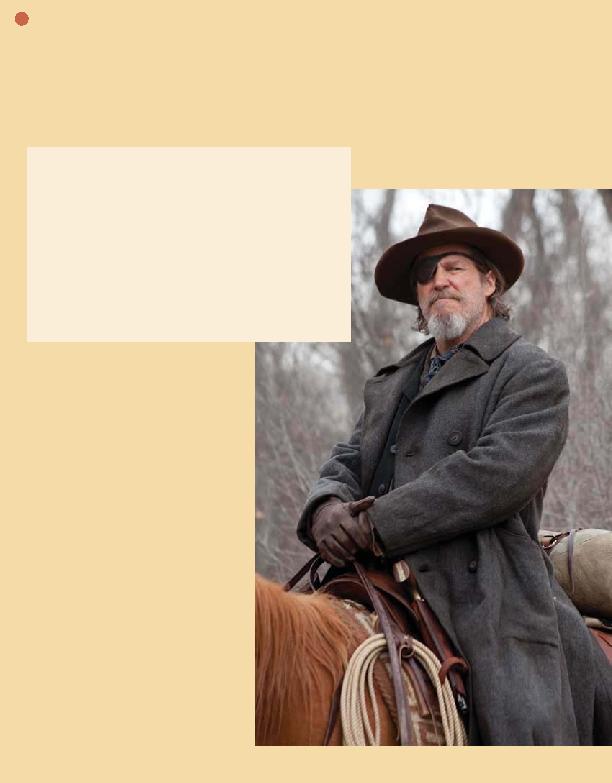
taken home a statue (his speech alone should be worth the votes). As ev-
idenced by their earlier films and more recently in their script for True
Grit, working all these years as editors, it can be argued that this experi-
ence helps the brothers on the page as well -- specifically, when it comes
to inserting smart visual transitions that utilize their spare slugline
style, evidenced in the scene right after Mattie first learns about U.S.
Marshall Rooster:
amorphous thing -- it's all [part of] making a movie."
They see the screenplay as the blueprint and admit that
their editing experience helps with structure and tran-
sitions on the page, but ultimately Joel feels that edit-
ing is "just a later part of the process." He adds, "Instead
of chiseling the shape out of the stone in the editing
part, you're polishing it. You're sort of inventing a story
or adapting a story, just getting the blueprint down
from here to there but -- and, I guess in a weird way --
editing our own stuff must inform that."
find themselves in the editing room wishing they'd
scripted a scene differently. "I don't know if I can give
you an example of it off the top of my head, but I know
that it's happened," Joel admits. "And more often cov-
erage like, `Why didn't we get this?' than scripting per
se," Ethan adds. "You kick yourself on very specific cov-
erage things -- that happens to everybody, I'm sure."
equally revel in their dialogue, whether it's quirky/char-
acter-driven (Raising Arizona, Fargo), tough guy (No Coun-
try for Old Men, Miller's Crossing) or emotionally resonant
(A Serious Man, The Man Who Wasn't There). It seems as
though the Coens have reinvented a subtler, more con-
temporary version of Shakespearean-styled iambic pen-
tameter. Yet for True Grit, the brothers were so in love with
Portis' dialogue that they decided to leave much of it un-
touched. This also meant that there was little reason for
says. "Portis clearly did and clearly immersed himself in the ephemera, pe-
riodicals and newspapers of the day, and it's just obvious reading the book.
But given that we had all that, that he had already done it, we just tried
to fill in the blanks."
Ethan says. "Not particularly in this movie, with this adaptation. But
sometimes you have to get information across and that's always dull and